Archive for the ‘ Flower Knowledge Base’ Category
Friday, February 26th, 2016
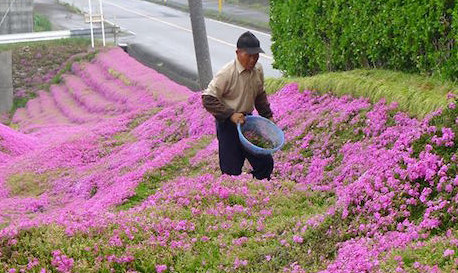
Mr. and Mrs. Kuroki married in 1956. The couple worked very hard to build a life for themselves on their cow farm, and, raised two children, as well. Then, Mrs. Kuroki unexpectedly lost her eyesight at the untimely age of 52. She was absolutely heartbroken and began to isolate herself from the rest of the world.
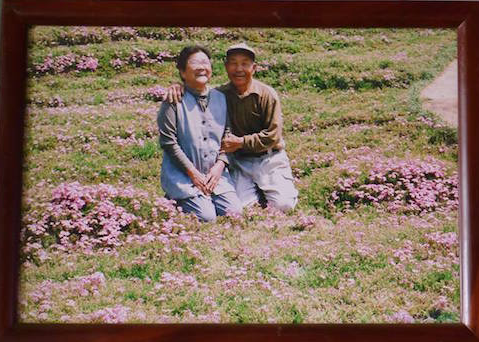
Mr. Kuroki couldn’t stand to see his wife like this, so he started thinking of ways to cheer her up. For two years, this devoted husband worked to produce a beautiful garden for his beloved wife to enjoy.
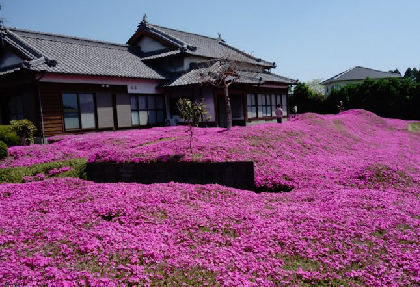
Now, thousands visit their home every Spring, delighting in the sea of pink flowers that represent this poignant love story. To read more, visit My Modern Met.
Posted in Fine Flowers Around The World, Flower Knowledge Base, The Art of Giving | Comments Off
Monday, February 8th, 2016

The showy Gloriosa Lily would be the perfect floral representative for Chinese New Year. Gung Hay Fat Choy! Image as seen at HouseTrends Magazine.
Posted in bbrooks member artisan florist, Fine Flowers Around The World, Flower Knowledge Base, Holidays | Comments Off
Thursday, February 4th, 2016
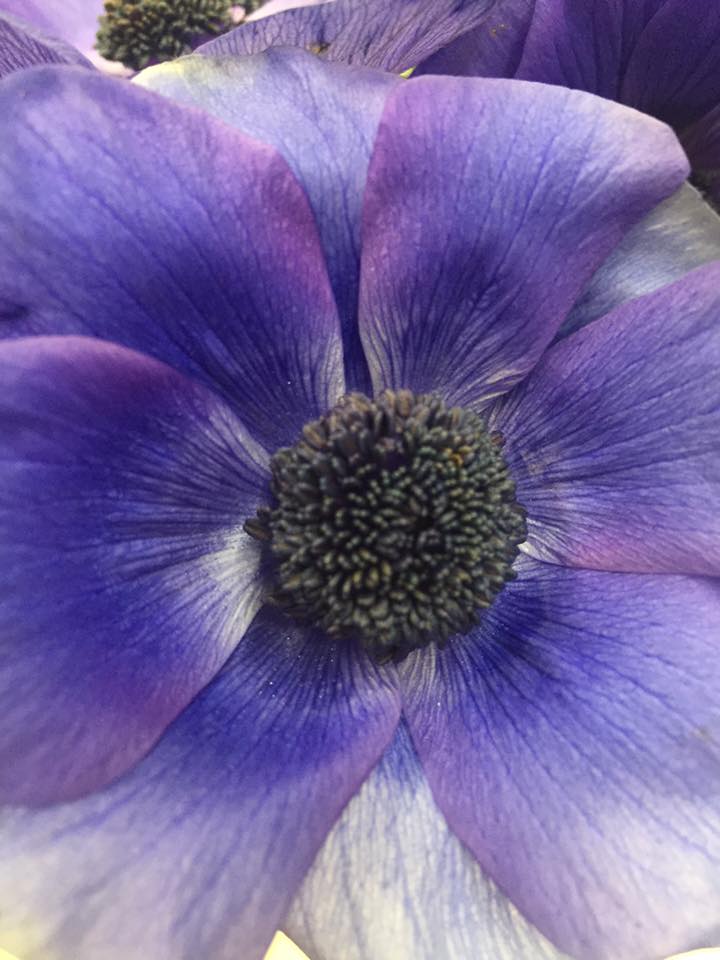 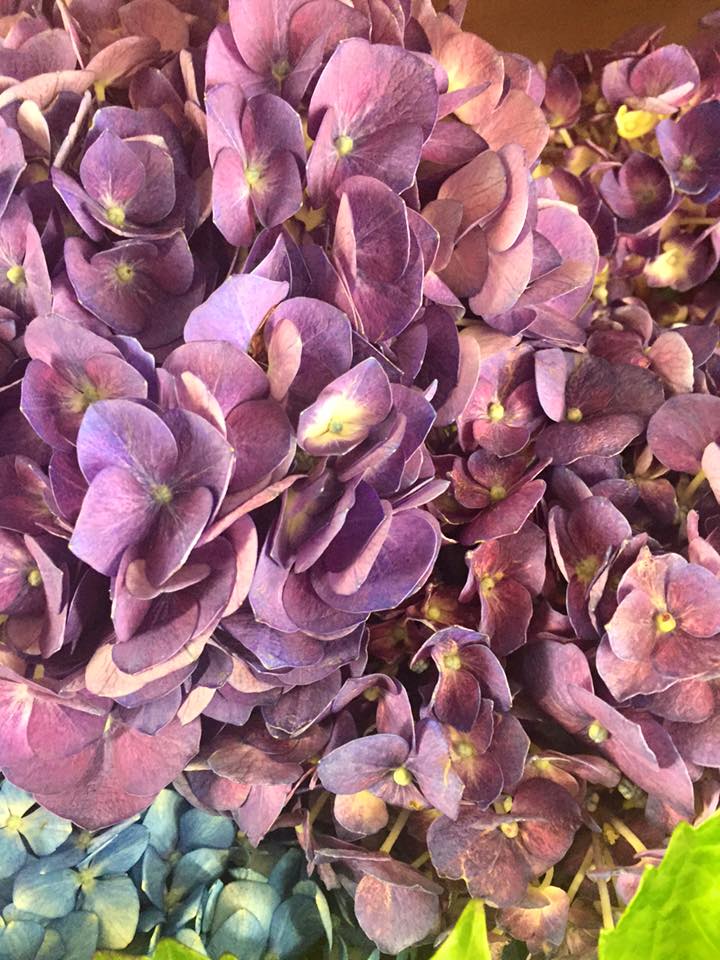 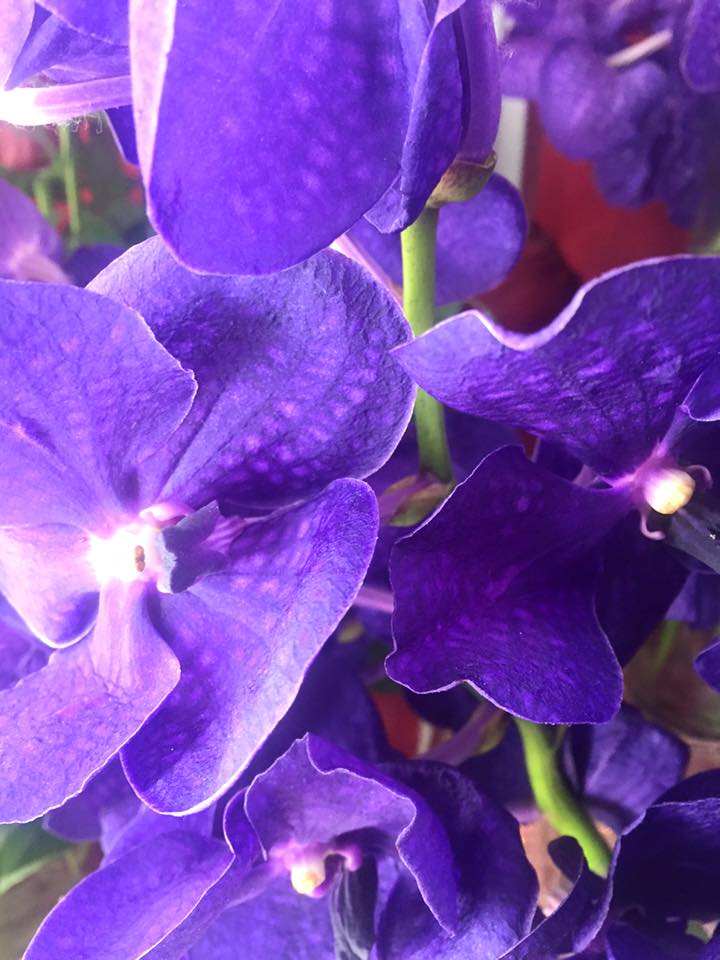
Valentines love purple anemones, antique hydrangea, and, vanda orchids, too!
As featured by BBrooks member Villa Feliz, AZ.
Posted in Fine Flowers Around The World, Flower Knowledge Base, Holidays | Comments Off
Wednesday, February 3rd, 2016

G. Page Flowers, NYC, does it again!
The most stunning mauve ranunculus – perfect for your Valentine!
Posted in Florists Friends, Flower Knowledge Base, Holidays | Comments Off
Monday, December 28th, 2015

A writer recalls the life lessons she learned during her tenure as a florist in this enlightening article from The New York Times.
Posted in bbrooks member artisan florist, Florists Friends, Flower Knowledge Base, The Art of Giving | Comments Off
Monday, November 9th, 2015

“…One of my personal secrets is to add herbs to an arrangement for not only the play of colors and textures, but also the intoxicating aomas, which will make other fall in love with the design.” ~ Maria Maxit
As seen in Flower Magazine.
Posted in Fine Flowers Around The World, Florists Friends, Flower Knowledge Base, The Art of Giving | Comments Off
Wednesday, October 28th, 2015
A lot of flowers provide a treat, like a sweet-smelling treat or a nectar reward for the service of pollination…. Not so with all…. The plants featured below trick their pollinators and don’t give a treat back. It’s a horticultural twist on trick or treat.

Dracula orchid, Dolls Eyes (seen above), Poison Ivy, Bleeding Tooth fungus…. the names say it all… As seen in Chicago Tribune Oct 2015
Posted in Flower Knowledge Base | Comments Off
Tuesday, October 27th, 2015

The Haleakala Silversword is found only within a 250 acre area on Mount Haleakala, on the island of Maui in Hawaii. Its habitat is at an elevation of 7000 – 10,000 ft, in soil composed of volcanic cinders.
Silverswords live for about 10 to 50 years as a low, round bush like the one in the left edge of the photo above. At the end of their life, they send up a flowering stalk that can grow over 6 feet tall within a few weeks, and produce up to 600 flower heads.
Silverswords have adapted to their dry environment by storing a large amount of water in their thick leaves. As the flowering stalk grows, it pulls water from the leaves and they begin to droop, like the one above.

The Haleakala Silversword is a member of the Silversword Alliance, a group of about 30 plant species throughout Hawaii, which are believed to have evolved millions of years ago from tarweed plants in California. These tarweed seeds floated over 2000 miles on the open ocean to colonize the Hawaiian islands. Both silverswords and tarweeds are members of the sunflower family.
The Haleakala Silversword is a threatened species. It used to be threatened by overzealous tourists and grazing cattle. Now that Haleakala is a National Park, the tourists and cattle are kept under control. What threatens the silverswords today is an invasive species of ant from Argentina, which is preying on the native insects that pollinate the silverswords. Since silverswords flower only once in their long life, this small window for pollination is critical to their survival.

After being pollinated, and spreading its seeds to the Hawaiian winds, the silversword dies. In the photo below, you can finally see why they call this plant “silver sword”. A new silversword is growing directly behind the old, shriveled leaves and sword.
The Hawaiian name for this plant is ‘āhinahina, which translates to “very gray”. Or maybe silver, it’s hard to say.
As seen at Kind of Curious
Posted in Flower Knowledge Base, Uncategorized | Comments Off
Wednesday, October 21st, 2015

Gregory Britt of Tourterelle Floral Design describes his approach to using his favorite autumnal finds. To learn more, read The Scout Guide.
Posted in bbrooks member artisan florist, Fine Flowers Around The World, Flower Knowledge Base, The Art of Giving | Comments Off
Friday, October 9th, 2015

Wild Coreopsis growing at University Ridge Neighborhood Park, Reno, NV.
(as seen via River School Farm)
Posted in Florists Friends, Flower Knowledge Base | Comments Off
|
|
|


















